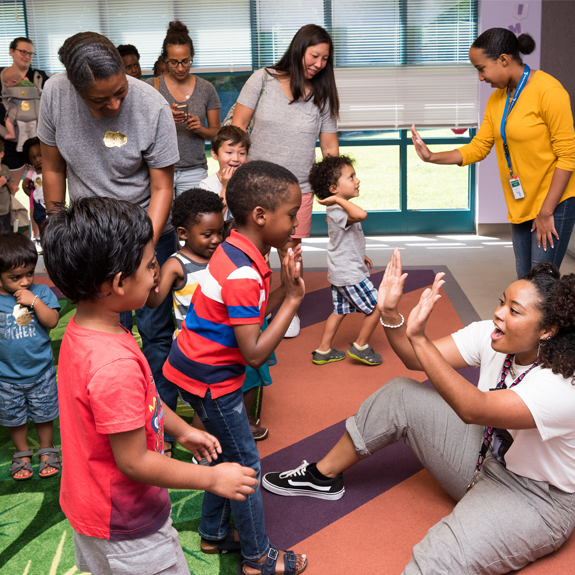Borrower Policy
Board of Trustees Meetings
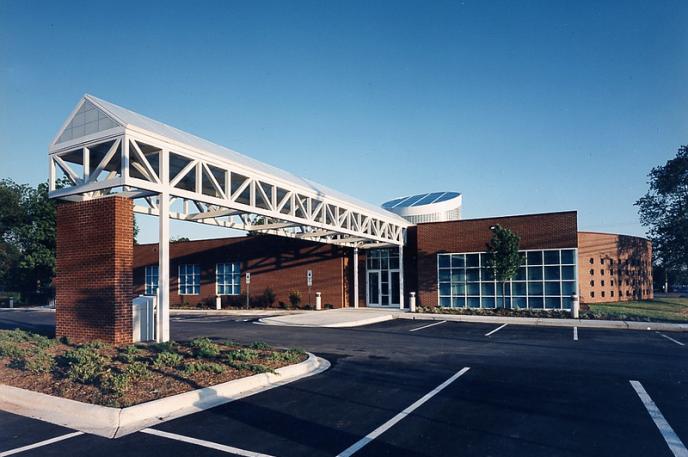
Get to Know the Allegra Westbrooks Regional Community
September 8, 2023
Situated conveniently off I-85 and Beatties Ford Road, Allegra Westbrooks Regional Library is located in the Lincoln Heights community in Charlotte’s Historic West End.
Formerly Beatties Ford Road Regional Library, Allegra Westbrooks Regional is the only Charlotte Mecklenburg Library named for an individual. Ms. Westbrooks began her career with the Public Library of Charlotte & Mecklenburg County in 1947. Prior to desegregation, she managed the only library serving African American residents in Charlotte at the time—the Brevard Street Library for Negroes. Ms. Westbrooks was promoted to Supervisor of Branches in 1957, making her the first African American public library supervisor in North Carolina. She served in this role for many years until her retirement in 1984. Ms. Westbrooks passed away in April 2017 at the age of 96.
Allegra Westbrooks Regional Library welcomes customers from many neighborhoods along and around busy Beatties Ford Road serving a diverse community of readers, learners, job seekers, entrepreneurs, community leaders, and more. A variety of library programs are offered including multiple book clubs, a multigenerational chess club, technology classes, and Storytime among others. Collections include a diverse selection of materials such as fiction and non-fiction titles in multiple world languages, African-American fiction collection and African-American and religion non-circulating collections.
Located just over a mile away from the Library is Johnson C. Smith University, Charlotte’s only historically Black college/university (HBCU) and West Complex, “the largest culturally centered placemaking project on the West Side.” Unique community organizations like For the Struggle, Inc. and Beatties Ford Road Vocational Training Center can also be found just blocks away from Allegra Westbrooks Regional. Well-established eateries like West End Fresh Seafood Market and Original Chicken and Ribs along with newcomer Archive CLT, a local staff favorite.
New residents may find support through the Office of Equity, Mobility, and Immigrant Integration , Refugee Health – Mecklenburg County Public Health, and Refugee Support Services. Are you new to Charlotte? Explore other neighborhoods through the Charlotte Mecklenburg Library blog and WelcomeCLT, a digital space created for newcomers to Charlotte.
Resources:
- Allegra Westbrooks Regional Library – 2412 Beatties Ford Rd Charlotte, NC 28216 | 704-416-3000
- Archive CLT – 2023 Beatties Ford Rd Suite D Charlotte, NC 28216 | 980-349-5595
- Beatties Ford Road Vocational Training Center – 1406 Beatties Ford Rd, Charlotte, NC 28216 | 980-349-4067
- For the Struggle, Inc – 1420 Beatties Ford Rd Charlotte, NC 28216 | 704-800-6628
- Johnson C. Smith University – 100 Beatties Ford Rd Charlotte, NC 28216 | 704-378-1000
- Office of Equity, Mobility, and Immigrant Inclusion – 600 E. Trade St Charlotte, NC 28202 | 704-336-1264
- Original Chicken and Ribs – 1100 Beatties Ford Rd Charlotte, N 28216 | 704-3322902
- Refugee Health – Mecklenburg Count Public Health – 2845 Beatties Ford Rd Charlotte, NC 28216 | 980-314-9470
- Refugee Support Services – 3925 Willard Farrow Dr Charlotte, NC 28215 | 704-458-3245
- West End Fresh Seafood Market – 2206 Beatties Ford Rd Charlotte, NC 28216 | 704-398-9001
This blog post was written by Alesha Lackey, regional manager for Charlotte Mecklenburg Library.
Executive Committee
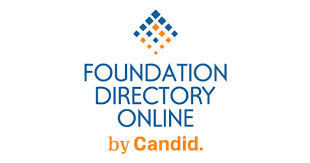
Foundation Directory Online Professional
Foundation Center Online Professional the premier resource for locating in-depth information about grantsmakers and their grants. Includes profiles for 140,000 grantmakers and 4 million grants. This resource is available for in-library use only. Please visit your local branch for access.
Allegra Westbrooks Regional
2412 Beatties Ford Road
Charlotte, NC 28216
United States
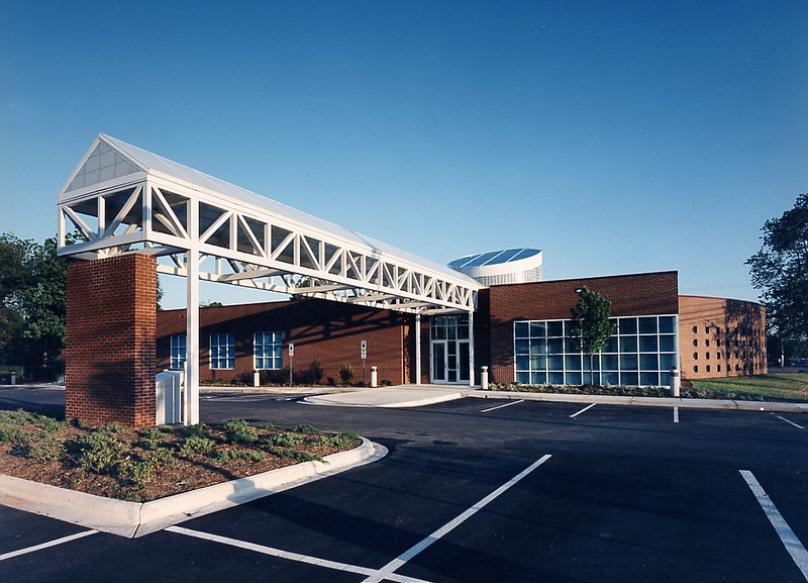
What We Offer
View Branch Events
Branch Manager
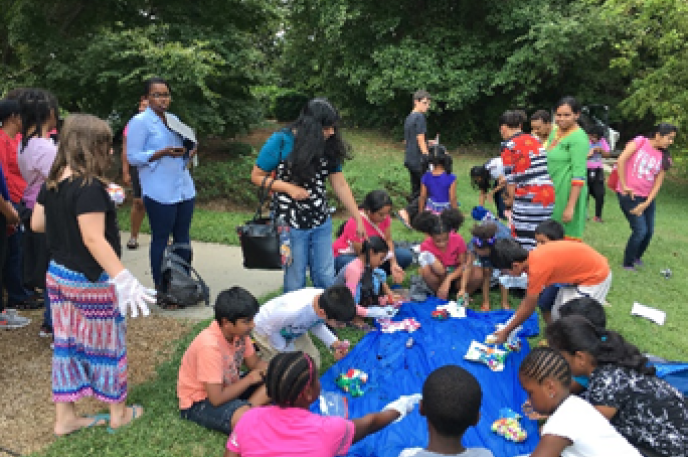
Summer Break begins to wrap up
August 9, 2019
Another summer has flown by. School supply shopping has begun, vacations are winding down and another Summer Break program is about to end.
Remember that Saturday, August 10 is the last day that you can enter reading time or activities in your log. Participants will have until Saturday, August 17 to pick up their milestone incentives – while supplies last. As a reminder, the incentives are as follows:
-
Wendy’s Jr. Frosty Coupons (earned at Sign-up)
-
Fine Waiver cards (earned at Sign-up, 10 hours, 15 hours, and 20 hours of reading)
-
Summer Break Completion incentive (Babies/children: a book; Teens: choice of a book or a Library drawstring bag; Adults: a Library magnet or notebook.)
Some participants may noticed they have earned a “Giving Makes the World Go Round" badge. Participants earn this badge when they reach 25 hours of reading. Every summer, the library gives back to the community by donating books to a local organization in need. This year’s recipient will be Charlotte Mecklenburg Schools. Charlotte Mecklenburg Library is happy to donate to CMS and we are thankful the school system will accept the contributions.
Thank you for participating in Summer Break! We hope you’ve had fun reading and learning all summer long. We’ll see you again next summer!!
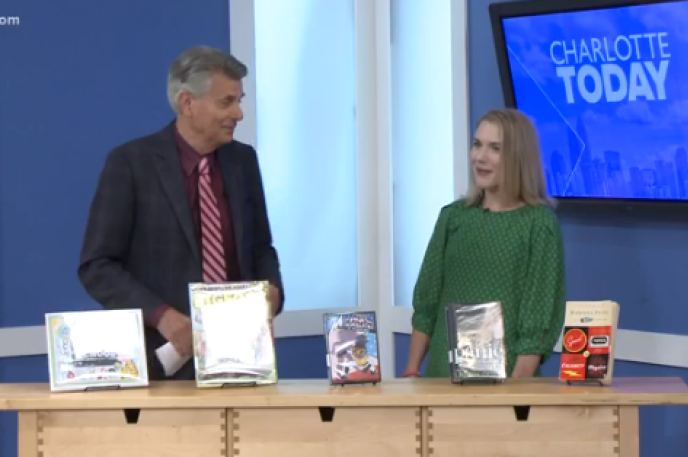
Charlotte Today: Back-to-school books for every age
August 12, 2019
Children's Services Leader, Jesse Isley, made a guest appearance on WCNC's Charlotte Today on Monday, August 5, 2019 and shared six back-to-school titles for kids, teens and adults.
Children’s picture books:
Your First Day of Circus School by Tara Lazar, illustrated by Melissa Crowton
Ladies and gentlemen, boys and girls of all ages! It's the most amazing day on earth: the first day of school! It can be a daunting prospect, but don't worry - your big brother can show you the ropes. Join a nervous boy and his enthusiastic older brother as they navigate the highs and lows of a first day at school . . . except this school is a big top, and the teacher is named Miss Stupendous, and the cafeteria can be a zoo, literally! It turns out, school isn't so scary when you can let off steam during recess (on a steam train) and walk on stilts to all of your classes. With a bit of help from family and some new friends, you'll make it to the top of the class in no time! This charming take on school readiness will delight new school-goers and take a bit of the fear out of those first-day jitters.
Back to School with Bigfoot by Samantha Berger and Martha Brockenbrough
The school year is about to start, and Bigfoot is worried about all the things that could go wrong--but he also remembers that all his friends will be there.
Youth fiction:
Mia Mayhem vs. the Super Bully by Kara West
Mia is excited about her first superspeed training class, but a bully on her relay team leads her to lose her shadow and, worse, to snap at her friends.
Teen fiction:
Panic by Lauren Oliver
In the poor town of Carp, New York, a group of teens enters a high-stakes game that involves a series of secretive, possibly deadly challenges throughout the summer, with the winner receiving more than $50,000--enough money to start a new life.
Adult fiction:
Special Topics in Calamity Physics by Marisha Pessl
A darkly funny coming-of-age novel and a richly plotted suspense tale told through the distinctive voice of its heroine, Blue van Meer. After a childhood moving from one academic outpost to another with her father (a man prone to aphorisms and meteoric affairs), Blue is clever, deadpan, and possessed of a vast lexicon of literary, political, philosophical, and scientific knowledge--and is quite the cinéaste to boot. In her final year of high school at the élite (and unusual) St. Gallway School in Stockton, North Carolina, Blue falls in with a charismatic group of friends and their captivating teacher, Hannah Schneider. But when the drowning of one of Hannah's friends and the shocking death of Hannah herself lead to a confluence of mysteries, Blue is left to make sense of it all with only her gimlet-eyed instincts and cultural references to guide--or misguide—her.

A history of baseball in Charlotte
August 15, 2019
From radios in cars and TVs in restaurants comes the sound of baseball – the buzz of the crowd, the call of a vendor, the crack of the bat. In the 300 block of South Graham St., the wall of Truist Field (formerly BB&T BallPark) runs right along the sidewalk. Four images are painted on it in commemoration of past Charlotte baseball teams and fields.
Latta Park
A playing area for baseball was cleared in Dilworth, Charlotte’s first suburb.
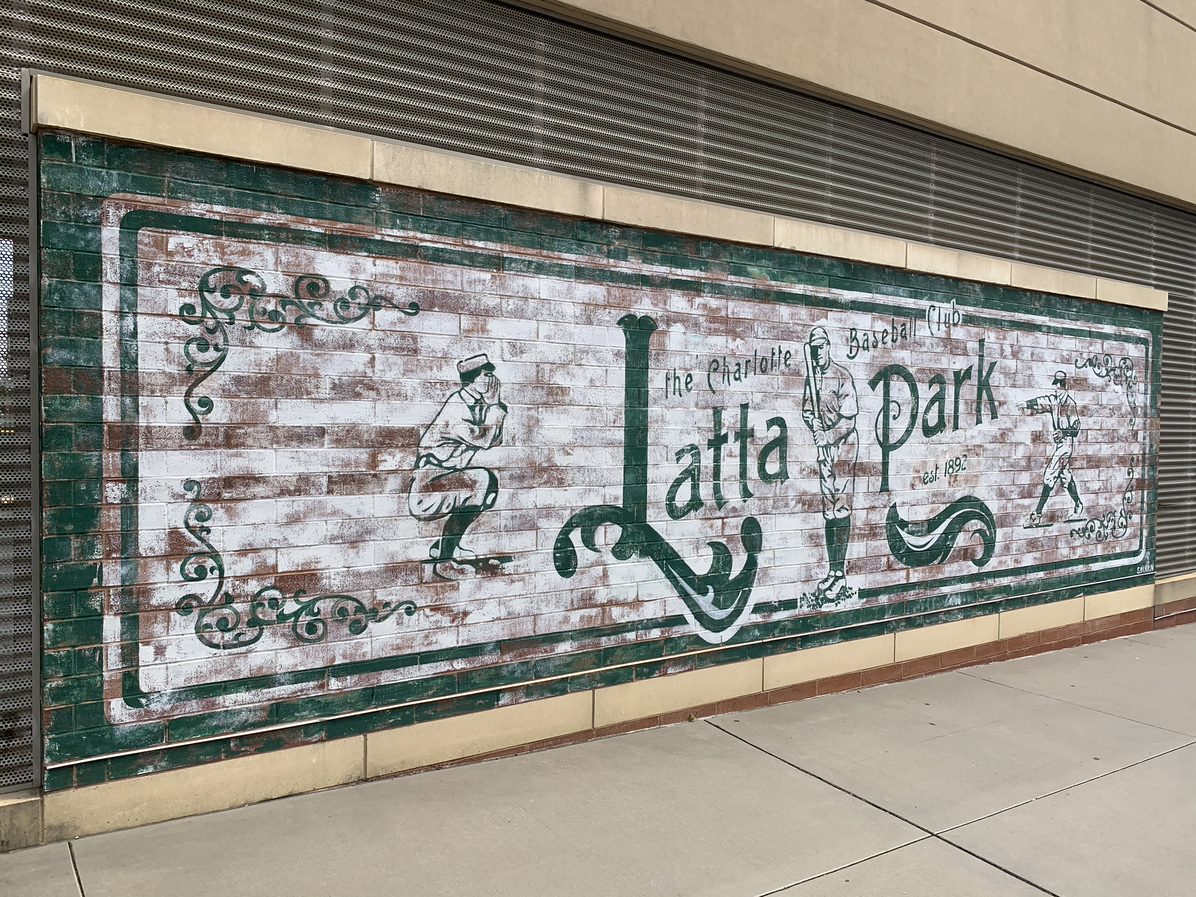 The Charlotte Baseball Club challenged amateur clubs from other cities to games in Charlotte and accepted challenges from other towns. The team’s poor performance one year prompted this sardonic boast in the May 13, 1892 Observer: “There are people who say it can beat the Pineville nine, that is, if Pineville has a nine.”
The Charlotte Baseball Club challenged amateur clubs from other cities to games in Charlotte and accepted challenges from other towns. The team’s poor performance one year prompted this sardonic boast in the May 13, 1892 Observer: “There are people who say it can beat the Pineville nine, that is, if Pineville has a nine.”
Wearn Field/Hayman Park
The Wearn name commemorates a whole family. Joseph Henry Wearn and Company were in the lumber business. Members of the family formed “the Wearn Nine” as an amateur team. J. H. Wearn (1861-1936) became
team. J. H. Wearn (1861-1936) became
president of the first professional team in Charlotte and the field was named after him. The league it belonged to folded in 1917.
“Hayman” refers to Felix Hayman, the son of German-Jewish immigrants who, like his father, was a butcher (the family name was sometimes listed without the first “A,” indicating that the first syllable was pronounced with a long “I” sound). He restarted minor-league baseball in Charlotte by organizing the team for the South Atlantic, or “Sally,” League in 1919. Years after his death in 1932, people told stories about his baseball sense, his business flair and his charity work. The story goes that Felix once traded a turkey from his butcher shop for a player (Charlotte Observer, February 1, 1931, Sec.1, p.8).

Clark Griffith Park/Jim Crockett Memorial Park
In 1941, the Charlotte Hornets were acquired by Clark Griffith, owner of the Washington Senators, and began to play in a new stadium on 400 Magnolia Ave. in Dilworth. The Senators became the Twins and they pulled their minor league team out of Charlotte in 1972.
Charlotte went three seasons without a professional baseball team until the Baltimore Orioles relocated their AA farm team here in 1976. The stadium changed its name following the death of Jim Crockett, who had brought the team to Charlotte. His daughter, Frances Crockett, ran the team until 1987, seeing it through a fire that destroyed the wooden stadium in March of 1985. The Crocketts sold the team in 1987, which changed its name to the Charlotte Knights and moved to play in Fort Mill, South Carolina.
Buster Sloan served as groundskeeper at Griffith Park from its opening until his death in 1978. Sloan and family lived in an apartment under the bleachers. Fans could smell the chicken frying on their stove (Charlotte Observer, June 27, 1978).

Knights Stadium
Beginning in 1990, the Charlotte Knights began play in Knights Stadium in Fort Mill. In 1997, the team began its association with the Chicago White Sox and moved up to AAA affiliation, which remained the case to the end of their time in Fort Mill and into the uptown era as well.
Other Teams
Up to 1976, all these teams were called the “Charlotte Hornets,” and up to 1954, they fielded white players only. African American baseball players organized their own teams as early as 1876. (Charlotte Observer, July 2, 1876, p.4) The “Brown Hornets” shared Griffith Park with the other Hornets. Textile mill workers also organized their own baseball teams and leagues. The story of their so-called “Outlaw” League is told in an online exhibit of materials from the Robinson-Spangler Carolina Room of the Charlotte Mecklenburg Library.
Want to learn more about baseball in North Carolina? The Robinson-Spangler Carolina Room has the Hank Utley Baseball Collection. In this collection you will find interesting documents and artifacts that were used in Utley’s book about the notorious “Outlaw” baseball league that formed in the late 1930s. There are newspaper clippings, interviews, biographies, statistics and photographs/negatives.

